All Stories
-
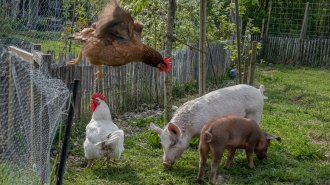 Health & Medicine
Health & MedicineWhy finding bird flu in a U.S. pig for the first time is raising new worries
Swine can act as so-called “mixing vessels” for human and bird flus, giving avian viruses an opportunity to adapt for spreading in people.
-
 Psychology
PsychologySmiles tweaked by AI can boost attraction, a speed-dating study shows
Using face filters to alter expressions manipulated feelings of attraction, raising questions about how such technology may influence social interactions.
-
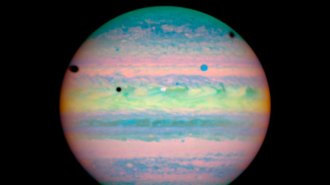 Planetary Science
Planetary Science50 years ago, scientists found a new moon orbiting Jupiter
In 1974, astronomers discovered Jupiter’s 13th moon. They now know of at least 95 moons and have launched missions to study some up close.
-
 Space
SpaceA distant quasar’s black hole is oddly huge for its galaxy
The black hole’s mass is over half that of all the stars in the surrounding galaxy, a record for any galaxy hosting a quasar.
By Ken Croswell -
 Health & Medicine
Health & MedicineLimiting sugar in infancy reduces the risk of diabetes and hypertension
Children who experienced sugar rationing during World War II were less likely to develop some chronic illnesses as adults than those with no rationing.
By Skyler Ware -
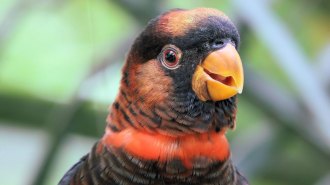 Animals
AnimalsA single enzyme can alter the vibrant colors in parrot plumage
Tweaking the chemical composition of a parrot-specific pigment can shift feathers from red to yellow or green.
-
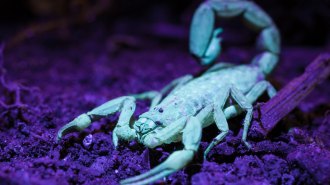 Life
LifeBackyard explorers discovered 15 new examples of glowing life
New finds in the Finding Fluorescence site include a Japanese beetle with a glowing blue mouth and a mushroom that gleamed bright red under its cap.
By Meghan Rosen -
 Animals
AnimalsThis marine biologist discovered a unique blue whale population in Sri Lanka
In addition to studying the world’s only nonmigratory blue whales, marine biologist Asha de Vos seeks to change her compatriots’ attitudes toward the ocean.
By Sandy Ong -
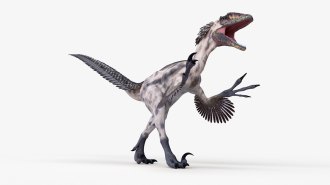 Paleontology
Paleontology‘Uncovering Dinosaur Behavior’ unearths paleontology’s biases
Paleontologist David Hone’s latest book fleshes out our understanding of dinosaur behavior.
-
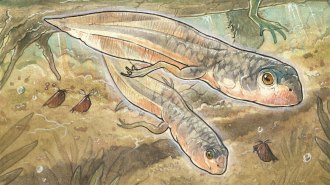 Life
LifeThe oldest known fossil tadpole was a big baby
Fossils of the ancient frog Notobatrachus degiustoi push the known tadpole timeline back more than 30 million years.
By Jake Buehler -
 Science & Society
Science & SocietyUsing AI, historians track how astronomy ideas spread in the 16th century
A new AI machine learning technique helped historians analyze 76,000 pages from astronomy textbooks spanning nearly two centuries.
-
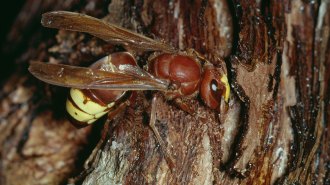 Animals
AnimalsThese hornets may be the alcohol-detox champs of the animal world
Vespa orientalis fed an 80-percent-ethanol brew still did hornet tasks and had normal life spans. This trick may be an adaptation to gut-dwelling yeast.
By Susan Milius